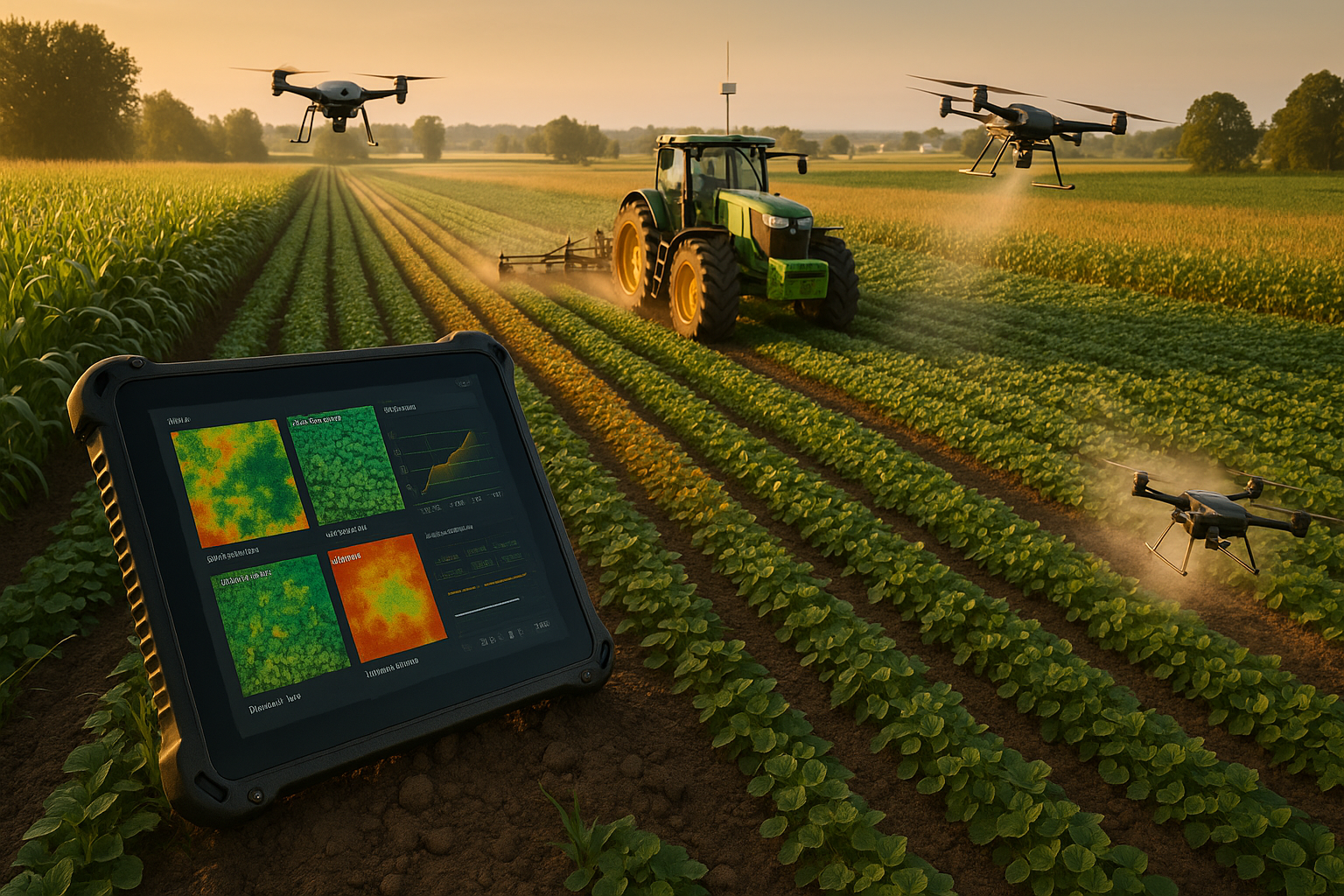The Economics of Intelligence: Why the Next Agricultural Revolution Will Be Built on Data, Not Land
For centuries, the foundation of agricultural power rested on one idea: whoever owned the most fertile land owned the future. Fields were currency, and size defined strength. But as the 21st century unfolds, a silent transformation is rewriting that logic. The new measure of power in agriculture is not ownership, but understanding. The most valuable resource of the future will not be land, but intelligence.
The agricultural world is facing a perfect storm of challenges. Climate change disrupts rainfall cycles, energy prices fluctuate unpredictably, and global markets demand both sustainability and productivity. In such an environment, owning more land does not guarantee success. What matters is how intelligently that land is managed. Data, knowledge, and strategic insight have become the new soil from which wealth grows.
This is the essence of a new paradigm, what I call The Economics of Intelligence. In this emerging system, value no longer depends on expansion, but on comprehension. The farmer who understands his soil, market, and climate deeper than anyone else can outperform competitors who own ten times more acreage. A hectare of intelligent agriculture can now yield what ten traditional hectares cannot. This is not luck, nor technology alone. It is strategy. It is the ability to think, interpret, and act with precision.
Technology has become the bridge between instinct and insight. Drones, satellites, and smart sensors allow us to see what the naked eye could never perceive. Artificial intelligence transforms those signals into forecasts, suggestions, and exact timing for interventions. The field has become a living system of data, and the farmer has become its conductor. Yet technology itself is not enough. Information without interpretation is noise. Intelligence begins only when data becomes decision.
This is the fundamental shift that defines the future of agriculture. For decades, farmers measured success in expansion. But expansion multiplies inefficiencies as fast as it multiplies land. Without strategy, more hectares mean more uncertainty. The new generation of farmers is learning that profitability does not come from doing more, but from understanding better. Intelligence has become the new fertilizer. It feeds not only the soil, but also the mind.
For investors, this transformation opens a new frontier. Traditional agricultural assets, such as land and machinery, produce linear returns. Data-driven intelligence, on the other hand, compounds in value. Once a farm establishes a digital infrastructure for analysis and prediction, each new season makes it smarter. Every new data point refines the model, sharpens the forecast, and increases the margin. This is the compounding power of agricultural intelligence, a self-learning ecosystem that grows in efficiency and profitability with time.
At Farmvanta, this is the philosophy that drives everything we build. We do not see agriculture as a static industry. We see it as a dynamic, intelligent organism that constantly evolves through data. Every field, every crop, every transaction carries a story, and our mission is to make those stories measurable, visible, and profitable. Through soil intelligence, AI-driven monitoring, and real-time agronomic guidance, we help farmers transform uncertainty into control. Our goal is to create a generation of data-empowered growers who make decisions with scientific confidence and entrepreneurial vision.
The global race for agricultural innovation has already begun. Nations that invest in digital intelligence are outpacing those that rely solely on traditional expansion. The Netherlands produces record yields on minimal land because it chose precision over territory. Countries across Africa, South America, and Eastern Europe hold enormous untapped potential,not because of empty land, but because of unutilized information. The opportunity is not in more soil, but in smarter systems.
Investors who recognize this early will define the next great leap in global food security. Agriculture is no longer a slow, seasonal trade. It is a fast, data-driven enterprise where intelligence is the main currency. The future will belong to those who measure, interpret, and adapt faster than others. The barriers are no longer physical fences, but intellectual boundaries.
Farmvanta exists to break those boundaries. We believe the farms of tomorrow will not only feed populations, but also generate intelligence that sustains economies. We are building the bridge between science and soil, between data and decision, between farmers and the digital future. Because the next agricultural revolution will not be fought with larger fields, but with sharper minds.


